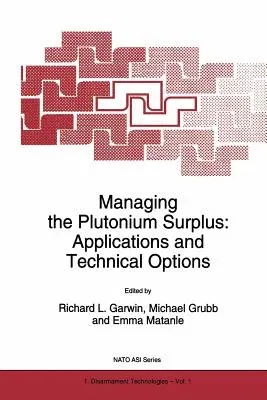Managing the Plutonium Surplus: Applications and Technical Options (Softcover Reprint of the Original 1st 1994)Paperback - Softcover Reprint of the Original 1st 1994, 11 October 2012

Qty
1
Turbo
Ships in 2 - 3 days
In Stock
Free Delivery
Cash on Delivery
15 Days
Free Returns
Secure Checkout
Part of Series
NATO Science Partnership Subseries: 1
Part of Series
NATO Science Partnership Subseries: 1 (Closed)
Print Length
219 pages
Language
English
Publisher
Springer
Date Published
11 Oct 2012
ISBN-10
9401044325
ISBN-13
9789401044325
Description
Product Details
Book Edition:
Softcover Reprint of the Original 1st 1994
Book Format:
Paperback
Country of Origin:
NL
Date Published:
11 October 2012
Dimensions:
23.39 x
15.6 x
1.27 cm
ISBN-10:
9401044325
ISBN-13:
9789401044325
Language:
English
Location:
Dordrecht
Pages:
219
Publisher:
Weight:
335.66 gm

